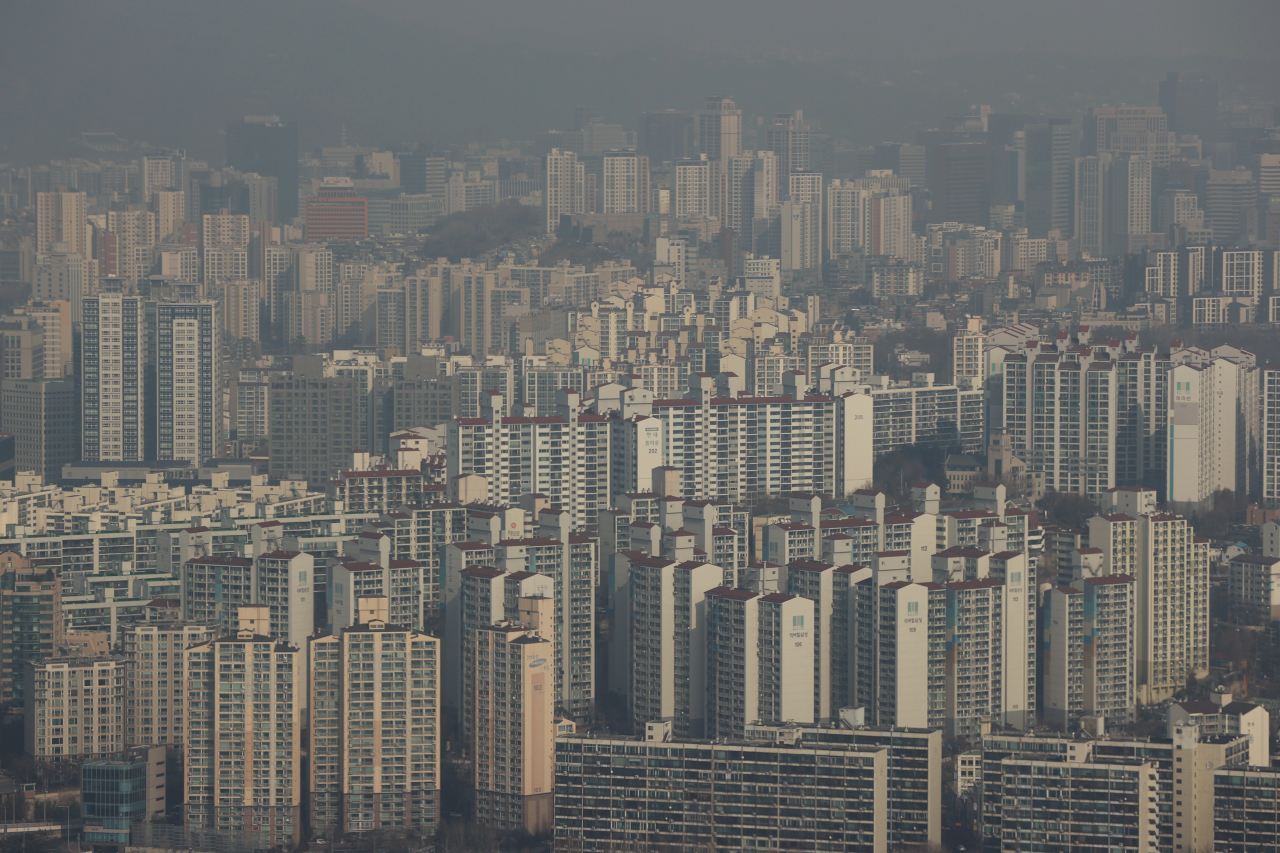
The number of South Koreans who moved to different residences in the country declined by the most in nine years last year amid fewer housing transactions, data showed Tuesday.
The number of people who changed their residences fell 6.7 percent on-year to 7.21 million in 2021, according to the data compiled by Statistics Korea.
It marked the sharpest on-year fall since 2012, when population mobility declined 7.6 percent.
The decline was mainly blamed on the base effect as people's mobility shot up in 2020 amid increased housing transactions caused by soaring home prices, according to the statistics agency.
The fall also resulted from demographic trends, in which the number of people in their 20s and 30s has been on the decline amid low birthrates and rapid aging.
As for the main reasons for the cross-city or intercity movement, housing issues took up the biggest slice of 37.6 percent last year, followed by family members with 23 percent and occupations with 22 percent.
The population mobility rate -- the number of those relocating per 100 people -- reached 14.1 percent in 2021, down 1 percentage point from a year earlier.
For December, the number of such people fell 13.7 percent on-year to 619,000 amid tepid housing transactions. It marked the 12th consecutive month the number has dropped.
The government has unleashed a series of comprehensive measures to curb rising home prices, including tax hikes and loan regulations. But the measures largely resulted in only a short-term letup of housing prices.
Housing prices have showed signs of stabilizing in recent months due to the central bank's rate hikes and tighter lending rules.
On Jan. 14, the Bank of Korea raised the key interest rate by a quarter percentage point to 1.25 percent. It marked the third rate increase since the BOK made its first pandemic-era rate hike in August last year. (Yonhap)
The number of people who changed their residences fell 6.7 percent on-year to 7.21 million in 2021, according to the data compiled by Statistics Korea.
It marked the sharpest on-year fall since 2012, when population mobility declined 7.6 percent.
The decline was mainly blamed on the base effect as people's mobility shot up in 2020 amid increased housing transactions caused by soaring home prices, according to the statistics agency.
The fall also resulted from demographic trends, in which the number of people in their 20s and 30s has been on the decline amid low birthrates and rapid aging.
As for the main reasons for the cross-city or intercity movement, housing issues took up the biggest slice of 37.6 percent last year, followed by family members with 23 percent and occupations with 22 percent.
The population mobility rate -- the number of those relocating per 100 people -- reached 14.1 percent in 2021, down 1 percentage point from a year earlier.
For December, the number of such people fell 13.7 percent on-year to 619,000 amid tepid housing transactions. It marked the 12th consecutive month the number has dropped.
The government has unleashed a series of comprehensive measures to curb rising home prices, including tax hikes and loan regulations. But the measures largely resulted in only a short-term letup of housing prices.
Housing prices have showed signs of stabilizing in recent months due to the central bank's rate hikes and tighter lending rules.
On Jan. 14, the Bank of Korea raised the key interest rate by a quarter percentage point to 1.25 percent. It marked the third rate increase since the BOK made its first pandemic-era rate hike in August last year. (Yonhap)








![[Graphic News] More Koreans say they plan long-distance trips this year](http://res.heraldm.com/phpwas/restmb_idxmake.php?idx=644&simg=/content/image/2024/04/17/20240417050828_0.gif&u=)
![[KH Explains] Hyundai's full hybrid edge to pay off amid slow transition to pure EVs](http://res.heraldm.com/phpwas/restmb_idxmake.php?idx=644&simg=/content/image/2024/04/18/20240418050645_0.jpg&u=20240419100350)






![[From the Scene] Monks, Buddhists hail return of remains of Buddhas](http://res.heraldm.com/phpwas/restmb_idxmake.php?idx=652&simg=/content/image/2024/04/19/20240419050617_0.jpg&u=20240419175937)

![[KH Explains] Hyundai's full hybrid edge to pay off amid slow transition to pure EVs](http://res.heraldm.com/phpwas/restmb_idxmake.php?idx=652&simg=/content/image/2024/04/18/20240418050645_0.jpg&u=20240419100350)

![[Today’s K-pop] Illit drops debut single remix](http://res.heraldm.com/phpwas/restmb_idxmake.php?idx=642&simg=/content/image/2024/04/19/20240419050612_0.jpg&u=)